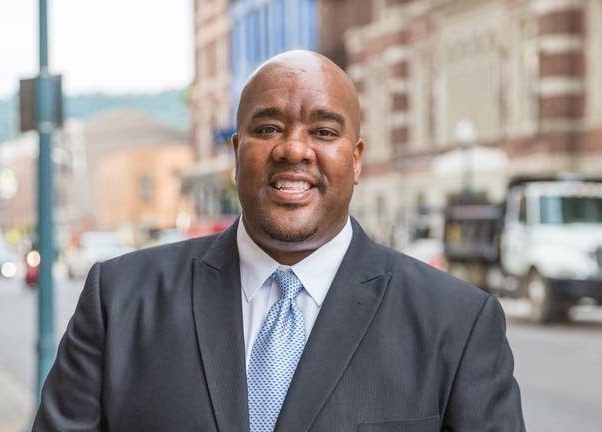
Michael Johnson is coming home.
Just a few months after beginning a job as the CEO of the United Way of Greater Cincinnati, Johnson has announced that he will return to his former position as CEO of the Boys and Girls Club of Dane County.
“I couldn’t be happier to return to Madison as the leader of the Boys & Girls Club of Dane County,” Johnson said in a statement. “My time away has only reinforced that this is my dream job, and I appreciate the opportunity to rejoin this incredible staff and champion the great work they have continued to do for the community.”
Johnson announced earlier this year that he would leave the Boys and Girls Club to take the helm at one of the largest United Way organizations in the country, overseeing a $60 million budget. He had not been seeking a new job, but rather was recruited to become the first African American CEO of the Cincinnati area nonprofit grantmaking agency.
At the time, United Way leadership was singing Johnson’s praises.
“He’s a great leader,” Board of Directors Chair Julia Poston told news station WCPO at the time. “He’s going to be perfect for our United Way here in Greater Cincinnati.”
But it appears the relationship between Poston and Johnson turned sour quickly — a development that Cincinnati community activists say is emblematic of strained race relations in the city of 301,000.
While building an executive team and overseeing the United Way’s major annual campaign, Michael did what Michael does: got out into the community, met with CEOs and other influential leaders, and made his presence felt in places and at times that wouldn’t normally be associated with a nonprofit CEO. For example, he took a leadership role on the scene of a mass shooting at the Fifth Third Bank in downtown Cincinnati and also spent time getting to know people at a homeless encampment. This kind of high profile community engagement may have rankled some on the board, community members say.
In the meantime, Johnson alleges Poston was micromanaging. An October 21 email to four board members obtained and published in part by WCPO, Johnson laid out several “red flags” regarding management challenges, specifically asking that all communication from the board go through him rather than having board members directing staff, and to give him autonomy in hiring decisions.
A later email to the entire board painted an even starker picture: Poston, he alleged, had told him who to hire for a senior leadership role and asked him to run certain decisions through the Chief Strategy Officer.
“I have never heard of a CEO having to run decisions through a subordinate. I have never been micromanaged and disrespected the way I am being now,” Johnson wrote in a five-page email to the board. He also alleged that she told him it would be “catastrophic” for him if he was unable to retain some executive staff who had already decided to retire or move on to other jobs – a statement he took as a threat.
That email was obtained by local Cincinnati media on Monday, after which United Way leadership claimed they had been addressing “certain performance issues with Michael.” Johnson and the United Way apparently spent the next few days negotiating a severance and announced Johnson’s departure yesterday. It’s an outcome that Cincinnati’s African American leaders attribute to race.
“Here was a black man who was fully vetted, his expertise, his experience, his background, and now, three months later, there are `performance issues?’ ” former Cincinnati school board member Vanessa Y. White told the Cincinnati Inquirer.
“The message was already put out,” community activist Iris Roley told the newspaper. “The toxic dehumanization of black people in this city is a major problem. To put in the media that there were performance issues is how the character assassination begins.”
Meanwhile, in Madison …
Former Chief Operating Officer Rod Mitchell has been serving as Interim CEO of the Boys and Girls Club of Dane County since Johnson’s departure. During his brief tenure, the Club secured approval and funding from the City of Sun Prairie to open a new center there and began work to open a Skilled Trades Center headed by former Grambling State University President Willie Larkin.
The Boys and Girls Club launched a nationwide search for a replacement. But this week, as Johnson’s departure from the United Way became imminent, the Boys and Girls Club board voted to hire him back. Terms of his new contract were not disclosed.
Johnson will return to the office he held since 2010. During his eight years with the club, the club’s budget more than tripled to $25 million and the number of youth served increased more than fourfold, from 1,800 in 2010 to more than 8,000 in 2017.
During those years, Michael did what Michael does — got directly involved as a mediator between families and police in the fatal shooting of Tony Robinson in 2015 and the beating of Genele Laird in 2016, became an outspoken advocate for efforts to reduce gun violence, even tried to camp out with the homeless on a cold winter night before safety concerns drove him back indoors — all high-profile roles that might not be taken on by the typical nonprofit CEO.
He also roiled some people with his tireless and often vociferous advocacy for the BGC’s programs and the youth BGC serves, which has caused clashes with some public officials.
Johnson will relocate back to the Madison area this month and officially begin his second stint at the head of the Boys and Girls Club of Dane County on December 15.



